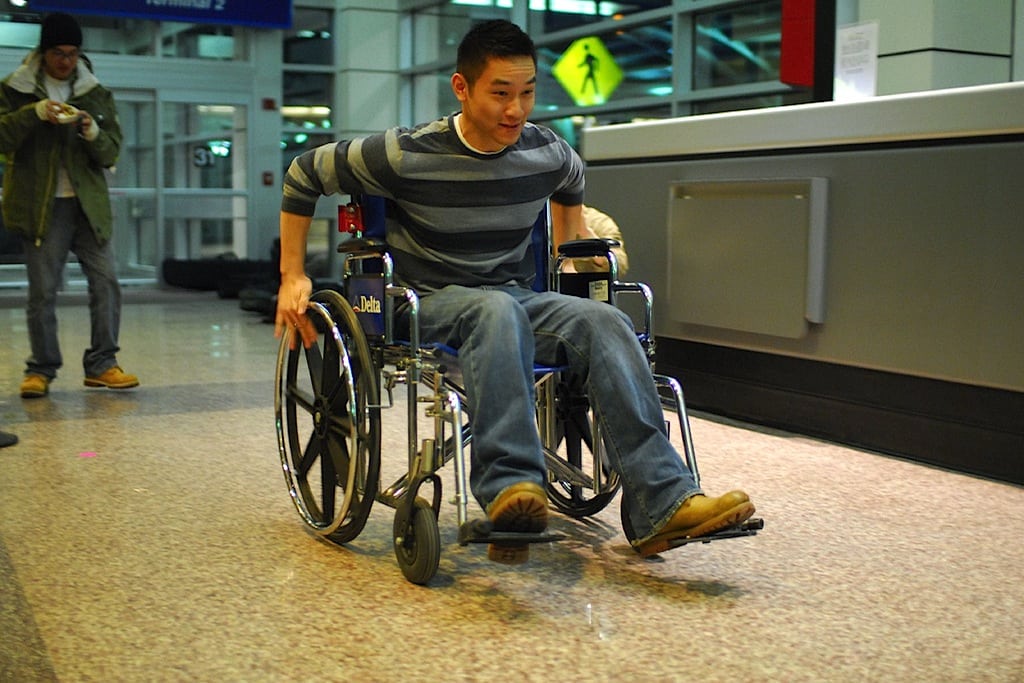Skift Take
Online booking, automated kiosks, and mobile check-ins have made life easier for many travelers, but until yesterday's ruling, they did little to help flyers with certain disabilities. These rules will need to be continually updated as new technology emerges.
The U.S. Department of Transportation announced new rules that ensure flyers with disabilities have equal access to airlines’ new digital tools including booking websites and automated airport kiosks.
The rules, outlined yesterday by U.S. Transportation Secretary Anthony Foxx, require airlines to update websites and add kiosks that can be used by passengers with disabilities. The new technology has made booking and check-in easier and faster for the average flyer, but more difficult for some flyers with disabilities.
The new guidelines are part of the agency’s ongoing updates of the 1986 Air Carrier Access Act. The main changes are as follows:
- Airlines have two years to make the main public-facing pages on their website accessible to individuals with disabilities. They have three years to improve all other webs pages.
- Ticket agents are required to reveal and offer web-based discounts to customers who are unable to use the airline’s website due to a disability. This rule applies 180 days after rule’s effective date, even if the website is completely accessible to flyers with disabilities.
- All U.S. and foreign airlines that have automated kiosks at U.S. airports must ensure that all new kiosks installed three or more years after the rule’s effective date meet required technical accessibility standards until at least 25 percent of all kiosks in each location is accessible.
- Accessible kiosks should be equipped with headset jacks and speech-enabled technology to service visually impaired customers, buttons and display screens must be a certain height, and Braille should be on all key pads. The standards for accessible kiosks are based on those set by the U.S. Department of Justice for ATM and fare machines in its 2010 Americans with Disabilities Act rule.
- Airlines must give passengers with a disability priority access to any available accessible kiosk the carrier owns, leases, or controls in that location at airport.
- Airlines are allowed to strap wheelchairs across a row of seats on all aircraft. This is a change from a previous rule that stated wheelchairs on all new aircraft must be stored in a closet.
U.S. Airways Fined $1.2 Million
The new rules were announced on the same day that U.S. Airways was fined $1.2 million for failing to provide adequate wheelchair assistance to passengers in Philadelphia and Charlotte.
It was one of the largest fines ever levied by the DOT in a disability case. A periodic review of airline compliance found that U.S. Airways used a combination of electric carts and wheelchairs to carry passengers between gates, which led to flight delays, missed connections, and an uncomfortable ride.
Under the Air Carrier Access Act, airlines are required to free wheelchair assistance to all passengers with disabilities. A portion of the fine will be used to improve U.S. Air’s disability services in Philadelphia and Charlotte.
The final rule on accessible kiosks and websites submitted to the U.S. Department of Transportation is included below:
The Daily Newsletter
Our daily coverage of the global travel industry. Written by editors and analysts from across Skift’s brands.
Have a confidential tip for Skift? Get in touch
Tags: disabled, us airways, usa
Photo credit: Boys race through Salt Lake City Airport in wheelchairs provided by Delta Air Lines. Ian / Flickr
